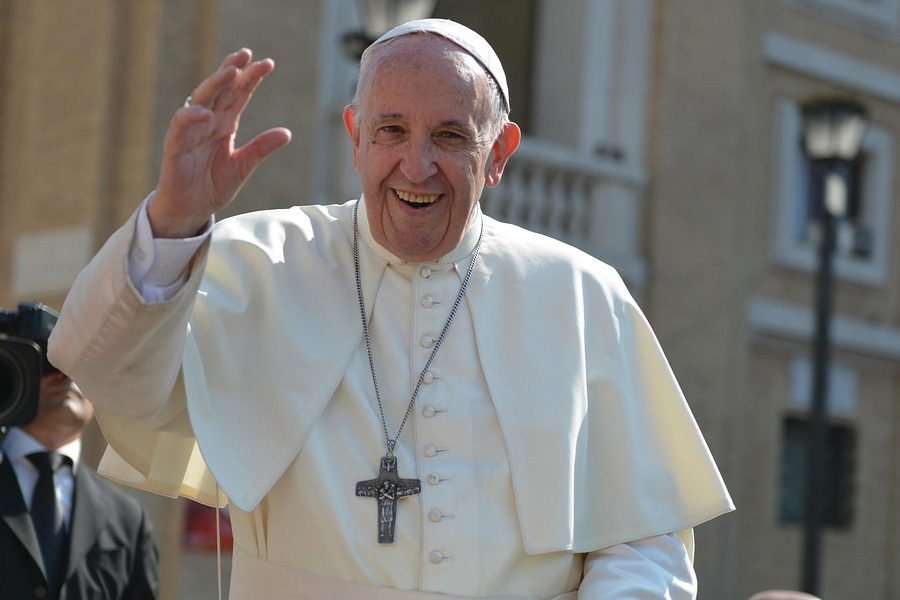When we think of who God is, and what God has done for us, and what God is doing for us right now, the wonder is that we don’t spend our whole lives on our knees, overcome with awe and gratitude. But that isn’t how we spend our lives. In fact, for a good part of the time we manage to forget God altogether – which, when you think of it, is pretty amazing. So, obviously, we’ve got something else on our minds – and it’s got to be something pretty big, if it’s capable of blinding us to God. Oh, it’s big all right. It’s big enough to fill the earth and blot out the sun, the moon, and the stars. It’s our ego. It’s our preoccupation with ourselves. We can get bored with other people in a moment, yet we are perfectly happy to carry on in our own company for eighty or ninety years. We must find ourselves fascinating.
I have a theory about why it’s so hard to remember names. I mean, it’s ridiculous, isn’t it? Each of us is capable of carrying all kinds of complicated information around in our heads. We can remember things that happened years and years ago. And yet, thirty seconds after we’ve heard it, we can’t remember, “Bob.” I suspect we’re so concerned about what kind of impression we are making on the other person, that we hardly hear their name in the first place. We’re thinking: What will he think of me? What will he tell other people about me? Is there something in my teeth? Come on, come on, think of something clever to say! Was that clever, or was it stupid? We’re so worried about ourselves that we’re hardly aware of the other person, as a person, at all.
A fellow went out to dinner with a woman, and for what seemed like hours he dominated the conversation. He went on and on about his accomplishments and his opinions and his plans. Finally, he caught himself and said, “I’m sorry, I’ve been doing all the talking. Now it’s your turn. So, tell me – what do you think of me? That’s pretty much how it is with the Lord and us. We’re sitting across the table from Jesus Christ, and are so full of ourselves that we forget he’s there. But for some reason known to God alone, God loves us too much to leave the table. So, for as long as we live, Our Lord tries every trick in the book – the good book – to distract us from ourselves, hoping that if we will just stop fondling our egos for a moment, we’ll notice what should be shatteringly obvious: God is out there – and in us. Then we’ll realize what idiots we’ve been, and we’ll love God back.
There’s no time now to go into all the ways that God tries to get us to forget ourselves long enough to focus on the big picture. We can list a few of them: parenthood, mystical experience, the frustration of our plans, humiliation (that’s a good one), awareness of our own mortality. But for now let’s concentrate on God’s number one tactic. This one is so important that it is actually comes attached to the command to love God. You know the one I mean: We are to love God – and love our neighbor as ourselves. If we can really love our neighbor – if we can really love anybody – it can shake us lose from our self-obsession and point us to the God who is love.
Having talked about all this in the abstract, let’s look at it actually happening in today’s gospel: Jesus has been performing miracles and drawing great crowds, but he knows his Passion and death are coming soon and he wants to prepare his disciples for what is going to happen. To do that he needs to go somewhere the crowds won’t follow. So, for the first and only time in his earthly ministry he crosses the border into a foreign country – and it’s a country where Jewish people are especially shunned. You would think that here, at least, he would have some privacy.
But he encounters a woman of the country who is so desperately anxious about her sick child that she is willing to approach a hated foreigner for help. Now in the terms we have been talking about, her situation makes her particularly vulnerable to faith. Her fear for her beloved daughter has made her forgetful of herself, so that now anything is possible for her – even faith in Jesus. Seeing the possibilities of the situation, Jesus tests her with a remark about throwing the children’s food to dogs. Now, if she were as self-obsessed at this moment as most of us are most of the time, she would have been terribly offended and stormed away. The humility of her response is evidence that she has forgotten herself to the point that she is able to see what is there in front of her: Jesus Christ her Lord and Savior. Then Jesus makes his diagnosis: “O woman, great is your faith! Let it be done for you as you wish.”
These occasions, when we are distracted from our usual preoccupations long enough to become aware of God, are moments of Grace. Now that we know what they are, and what they are for, we can be on the look out for them, and try to cooperate with them: If a clear sky on a late summer night makes us feel in the pit of our stomach how insignificant we are in the grand scheme of themes, we can take the occasion to say a prayer. If you have been given the incredible gift of being able to look into your child’s eyes, you can spare a thought for the giver of that gift. If what is happening in our life at a given moment strikes us as an insult to us from God, we can remember that in the history of the relationship, most of the insult has been on the other side. And we can be reminded that a seeming insult can sometimes be the prelude to a miracle of healing. And, finally, we can go out there and try to love somebody today. Better yet, we can start right now.
Rev. Charles B. Gordon, C.S.C., is co-director of the Garaventa Center for Catholic Intellectual Life and American Culture at the University of Portland. He writes and records a regular blog called “Fractio Verbi.”





